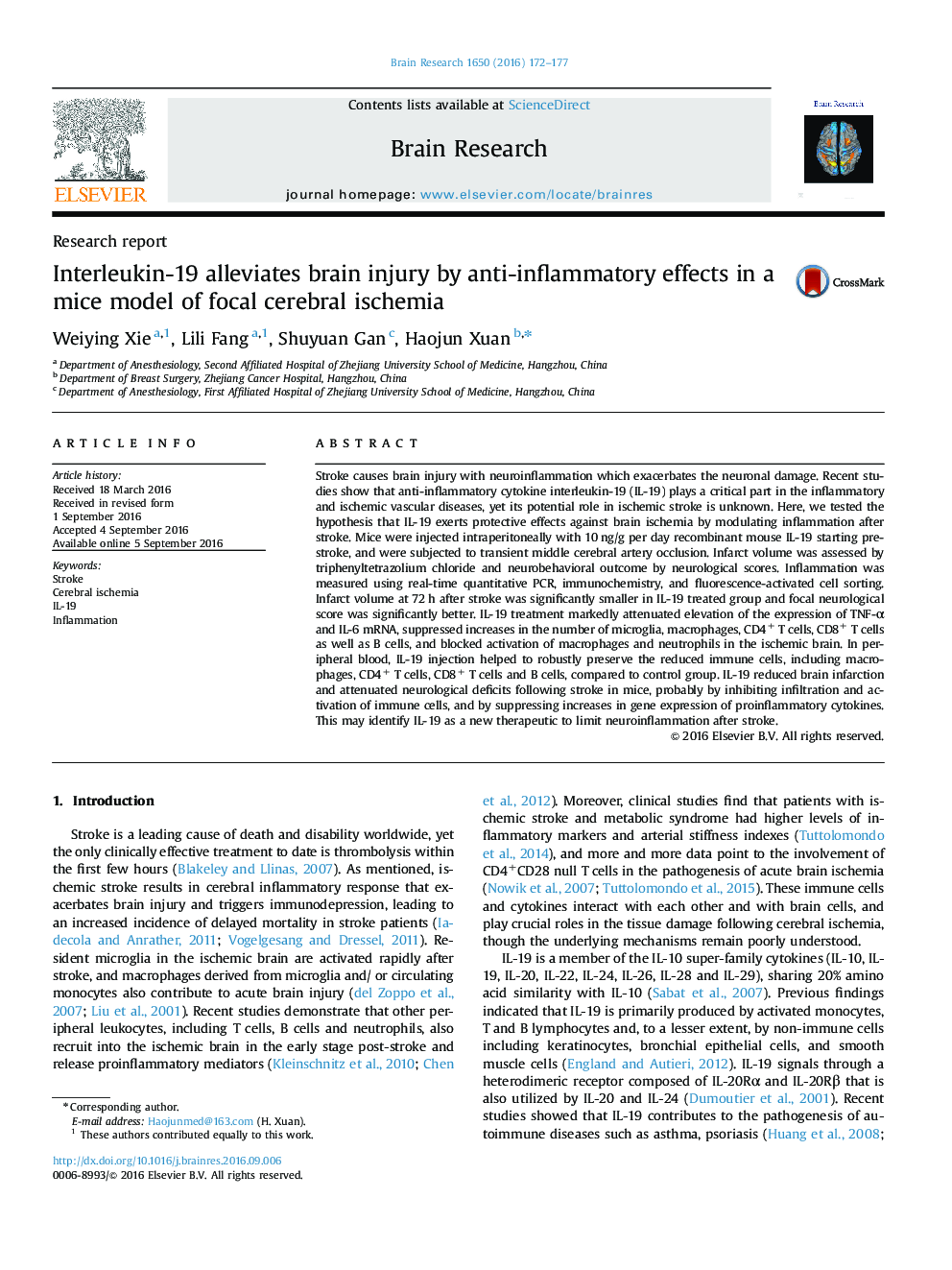| کد مقاله | کد نشریه | سال انتشار | مقاله انگلیسی | نسخه تمام متن |
|---|---|---|---|---|
| 6262273 | 1613794 | 2016 | 6 صفحه PDF | دانلود رایگان |
- IL-19 reduced brain infarction and attenuated neurological scores after stroke.
- The mechanism may rely on IL-19's anti-inflammatory effects.
- IL-19 may be a potentially useful therapeutic for future stroke management.
Stroke causes brain injury with neuroinflammation which exacerbates the neuronal damage. Recent studies show that anti-inflammatory cytokine interleukin-19 (IL-19) plays a critical part in the inflammatory and ischemic vascular diseases, yet its potential role in ischemic stroke is unknown. Here, we tested the hypothesis that IL-19 exerts protective effects against brain ischemia by modulating inflammation after stroke. Mice were injected intraperitoneally with 10 ng/g per day recombinant mouse IL-19 starting pre-stroke, and were subjected to transient middle cerebral artery occlusion. Infarct volume was assessed by triphenyltetrazolium chloride and neurobehavioral outcome by neurological scores. Inflammation was measured using real-time quantitative PCR, immunochemistry, and fluorescence-activated cell sorting. Infarct volume at 72 h after stroke was significantly smaller in IL-19 treated group and focal neurological score was significantly better. IL-19 treatment markedly attenuated elevation of the expression of TNF-α and IL-6 mRNA, suppressed increases in the number of microglia, macrophages, CD4+ T cells, CD8+ T cells as well as B cells, and blocked activation of macrophages and neutrophils in the ischemic brain. In peripheral blood, IL-19 injection helped to robustly preserve the reduced immune cells, including macrophages, CD4+ T cells, CD8+ T cells and B cells, compared to control group. IL-19 reduced brain infarction and attenuated neurological deficits following stroke in mice, probably by inhibiting infiltration and activation of immune cells, and by suppressing increases in gene expression of proinflammatory cytokines. This may identify IL-19 as a new therapeutic to limit neuroinflammation after stroke.
Journal: Brain Research - Volume 1650, 1 November 2016, Pages 172-177
